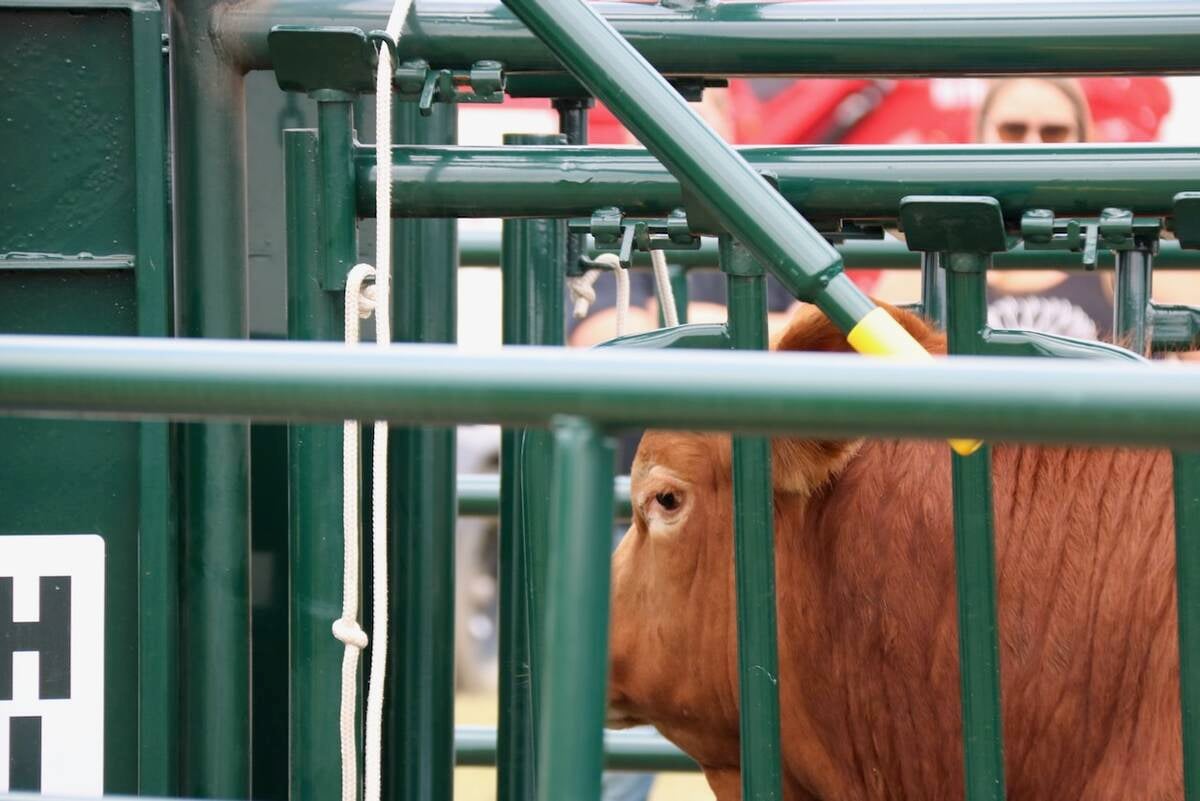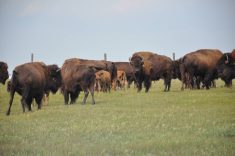Two university students hope their research will give cattle producers affordable options for supplementing animals on low quality forage diets.
Amanda Van De Kerckhove and Lee-Anne Walter, graduate students in the University of Saskatchewan’s department of animal and poultry science, found there were no negative impacts in feeding dried distillers grain with solubles (DDGS)to breeding and growing cattle. And there might be savings.
Speaking at the Saskatchewan Beef and Forage Symposium in Saskatoon Jan. 21, Van De Kerckhove detailed experiments at the Termuende research farm near Lanigan, Sask.
Read Also

Good handling equipment a must on cattle operations
It’s important for the safety of producers and everyone else dealing with their stock that handling equipment is functional and safe.
She found cattle fed DDGS gained more weight than those fed commercial supplements.
“That speaks to the nutritional density of DDGS,” she said in an interview.
It’s also significant given the increased amount of these substances expected as byproducts of a burgeoning ethanol industry.
The added benefit was the cost saving, with DDGS priced at $140 a ton versus commercial supplements at $350 a ton when the study was done in 2007. Van De Kerckhove said it cost $1.10 per head per day on DDGS versus $1.36 for commercial supplements.
Other studies compared cows fed barley straw chaff on low quality forage versus those on a 30:70 percent corn-wheat blend DDGS.
She found DDGS acts as an energy supplement, with cows gaining as much as 26 pounds more weight than those on barley.
Costs were the same in the treatments but the group with DDGS did significantly better on a weight basis.
“It’s just one more option that producers can price out,” she said.
In feedlot finishing experiments, Walter did comparisons between corn and wheat based DDGS.
She did not find statistically significant differences in dry matter intake with wheat DDGS, but observed cows gaining better on higher levels of wheat DDGS.














